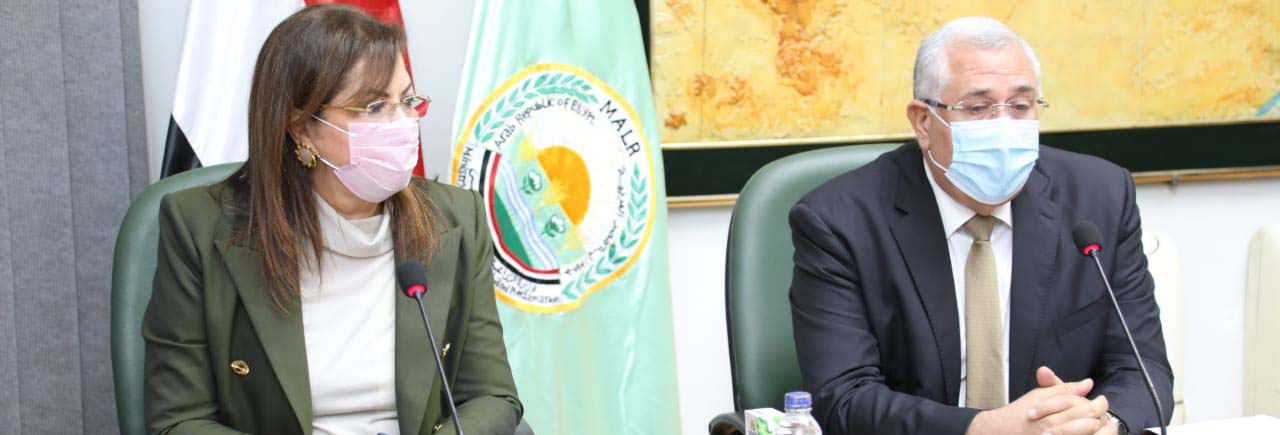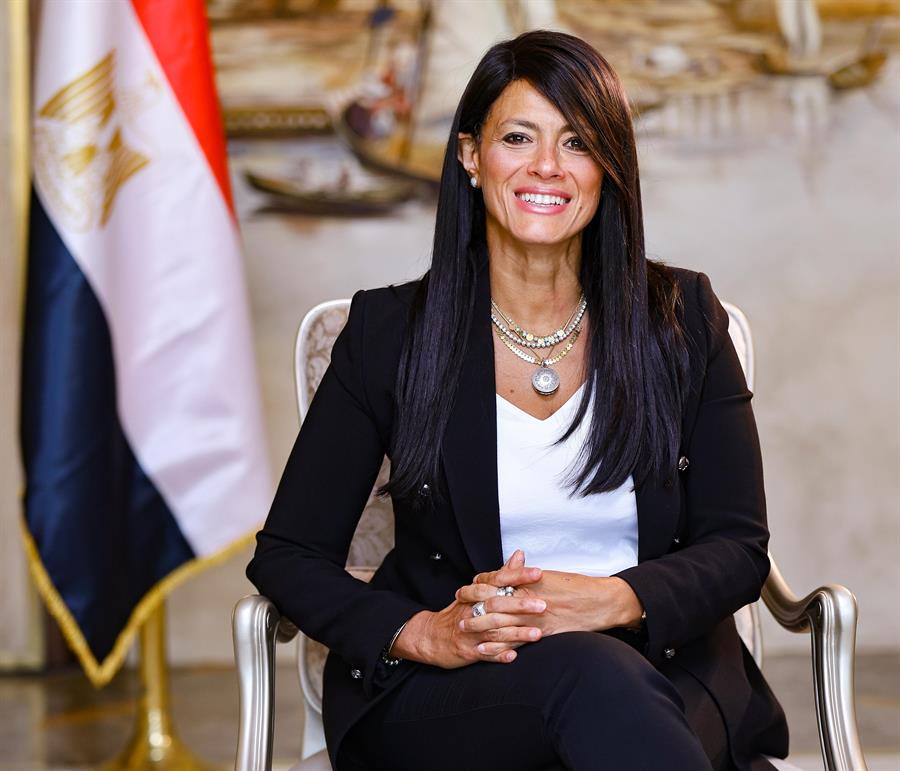The Ministers of Planning and Agriculture discuss cooperation between the Agriculture Ministry and TSFE in raising the efficiency of assets

22 November 2021
Minister of Agriculture and Land Reclamation El Sayed El Quseir and Minister of Planning and Economic Development Dr. Hala El-Said held a meeting on Sunday, to discuss the development of cooperation between the Ministry of Agriculture and the Sovereign Fund of Egypt in raising and managing assets.
The meeting took place in the presence of Deputy Minister of Agriculture Mostafa El-Sayyad Mostafa El-Sayyad, the CEO of The Sovereign Fund of Egypt (TSFE),Ayman Soliman, and some leaders from the two ministries
El Quseir and El-Said also discussed maximizing the benefit from the projects and assets owned by the Ministry of Agriculture and its affiliated bodies. The two sides also discussed injecting the necessary investments to develop, rehabilitate and operate these assets in a manner that achieves the added value of the national income, provide job opportunities, and achieve the maximum possible benefit from the underutilized assets, to achieve comprehensive and sustainable development, Egypt Vision 2030.
The Ministers of Agriculture and Planning affirmed the directives of His Excellency President Abdel Fattah El-Sisi to raise the efficiency of all state-owned assets and manage them economically.
This is done through the state or in partnership with the private sector and civil society institutions, increasing the volume of investments, diversifying sources of financing, and cooperating with local and international companies and institutions. It aims to increase investment, operation, and optimize the state’s assets and resources to maximize their value, and give a strong impetus to development and preservation of the rights of future generations.









